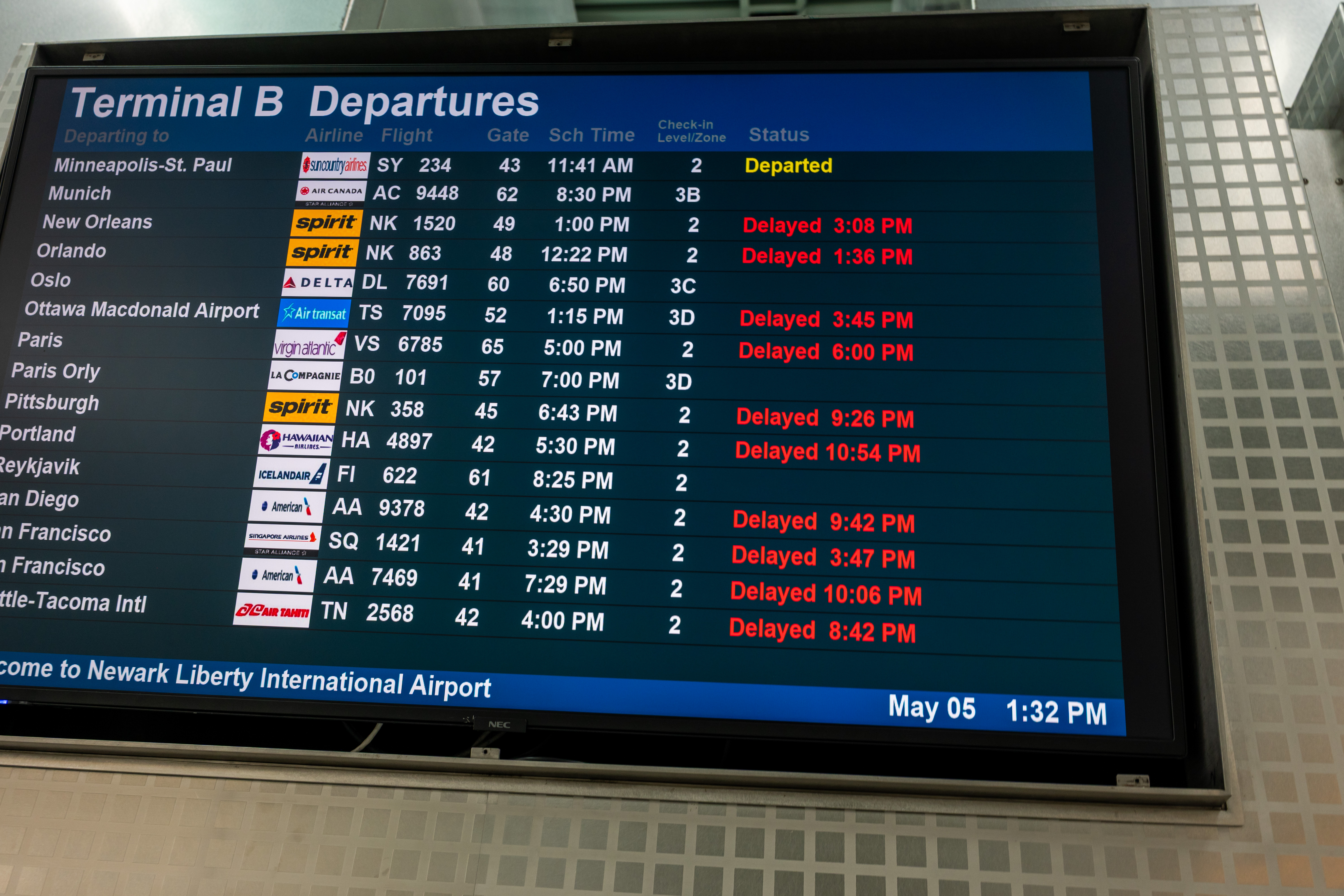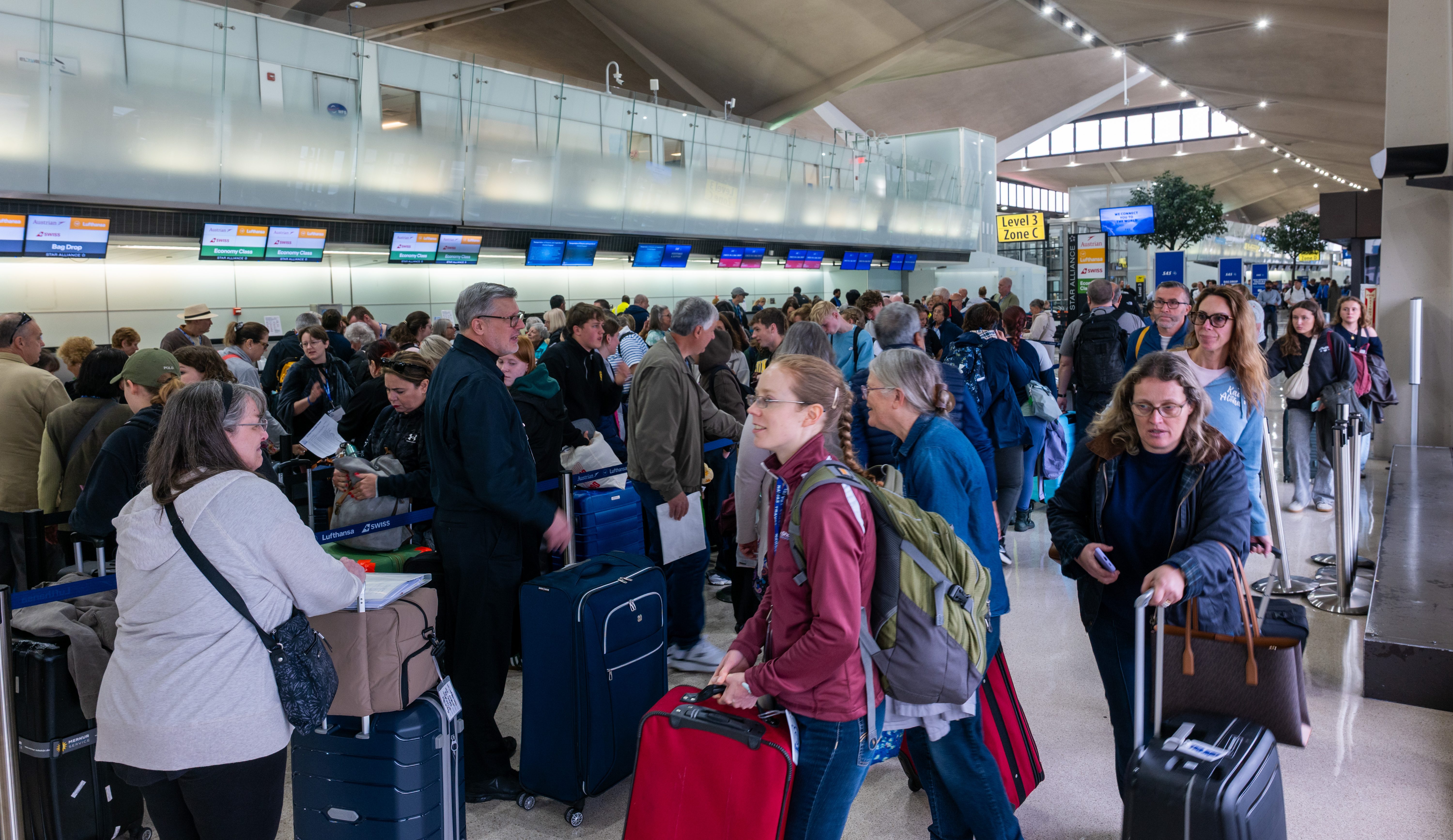Newark Airport Delays: Why & How to Beat the Chaos
Newark Airport Chaos: Delays Soar Amid Storms & Staffing Woes
Introduction: Stuck on the Tarmac Again?
Passengers traveling through Newark Liberty International Airport on Tuesday and hoping for a break from the ongoing delays there, were unfortunately out of luck. Frustration levels were high as flights were grounded or significantly delayed, turning travel dreams into travel nightmares. Are you one of the many caught in this airport snarl? Let's delve into the reasons behind these disruptions and what you can do about it.
FAA Ground Delay: A Perfect Storm of Problems
The Federal Aviation Administration (FAA) reported a ground delay program at Newark in effect. But why? The root cause was a combination of factors, a sort of perfect storm brewing over the Northeast: FAA staffing issues at its Philadelphia operations center, low ceilings from weather conditions, and runway construction that has reduced the airport to using only a single runway. It's like trying to pour a gallon of water through a straw – something's gotta give, and unfortunately, that something is your flight schedule.
The Delay Numbers: Staggering and Sad
The sheer scale of the delays is enough to make any traveler groan. Throughout the day, flights destined for Newark were experiencing average delays of 161 minutes at their departure points. That's nearly three hours before you even take off! And some flights were facing delays of up to five hours, according to the FAA. FlightAware reported that a total of 177 flights into or out of Newark were delayed on Tuesday, with a staggering 100 flights canceled altogether. It's a logistical mess, to say the least.
Weather on the Horizon: Making Matters Worse
As if the staffing shortages and construction weren't enough, Mother Nature decided to join the party. The ground delay came before severe weather was expected to hit the tri-state area later in the day. Could things get any worse? Unfortunately, yes. The approaching storms threatened to exacerbate the existing delays and potentially lead to even more cancellations.
A Week of Woes: Newark's Delay Dilemma
Newark has been plagued by significant delays over the past week. It's not just a one-day issue; it's becoming a pattern. These delays stem from a combination of FAA staffing shortages, equipment issues, and ongoing runway construction. It feels like a never-ending cycle of problems.
Digging Deeper: What's Causing the Staffing Shortages?
So, what's behind these persistent FAA staffing shortages? Several factors contribute, including budget constraints, attrition, and the complexities of training air traffic controllers. Training is incredibly rigorous and takes a long time, meaning that filling these positions isn't a quick fix.
Runway Construction: A Necessary Evil?
The runway construction at Newark is aimed at improving the airport's long-term capacity and efficiency. However, in the short term, it's causing significant disruptions. Imagine undergoing renovations in your home – it's chaotic while it's happening, but hopefully, the end result is worth the hassle.
Equipment Issues: The Unseen Disruptor
Behind the scenes, equipment malfunctions can also contribute to delays. These issues can range from problems with radar systems to communication breakdowns. While less visible to passengers, they can have a significant impact on air traffic flow.
How to Check Your Flight Status: Stay Informed
In situations like these, staying informed is crucial. Regularly check your flight status online through the airline's website or a flight tracking app like FlightAware or FlightStats. This will give you the most up-to-date information about delays, cancellations, and gate changes.
What to Do If Your Flight Is Delayed: Proactive Steps
If your flight is delayed, don't just sit and wait. Take proactive steps:
- Contact your airline to inquire about rebooking options.
- Explore alternative flights or travel arrangements.
- Consider filing a claim for compensation if your delay meets certain criteria (check your airline's policy).
Know Your Rights as a Passenger: Consumer Protection
It's important to be aware of your rights as an airline passenger. The Department of Transportation (DOT) has rules in place to protect consumers in cases of significant delays and cancellations. Familiarize yourself with these regulations so you know what you're entitled to.
Travel Insurance: A Safety Net for Unexpected Events
Travel insurance can provide a financial safety net in case of delays, cancellations, or other travel disruptions. While it's an added expense, it can offer peace of mind and help cover unexpected costs like hotel accommodations or rebooking fees.
Navigating Newark Airport: Tips and Tricks
Getting Around: Public Transportation vs. Rideshares
Consider using public transportation like the AirTrain or NJ Transit to get to and from Newark Airport. This can help you avoid traffic congestion and parking fees. Rideshares are also an option, but be prepared for surge pricing during peak hours.
Food and Amenities: Making the Most of Your Wait
If you're stuck at the airport, make the most of your time. Explore the various restaurants, shops, and lounges available. Download a good book or catch up on work. Stay hydrated and try to find a comfortable place to relax.
Staying Connected: Wi-Fi and Charging Stations
Ensure your devices are charged and connected to the airport's Wi-Fi. This will allow you to stay informed, communicate with loved ones, and entertain yourself during the delay. Many airports also offer charging stations for your convenience.
The Bigger Picture: Infrastructure Investment
The ongoing delays at Newark and other major airports highlight the need for infrastructure investment. Upgrading air traffic control systems, expanding runways, and improving staffing levels are crucial to ensuring a smooth and efficient travel experience for passengers.
Conclusion: Weathering the Storm
The delays at Newark Airport, fueled by a combination of staffing shortages, weather conditions, and construction, serve as a reminder of the complexities of air travel. While these disruptions can be frustrating, staying informed, knowing your rights, and taking proactive steps can help you weather the storm and minimize the impact on your travel plans. Remember to check your flight status frequently, explore rebooking options, and consider travel insurance for added protection. The hope is that planned infrastructure improvements will alleviate the pain in the future.
Frequently Asked Questions
Here are some frequently asked questions about Newark Airport delays:
-
Why is there so much construction at Newark Airport?
The construction is aimed at modernizing the airport and increasing its capacity to handle more flights in the future. While it's disruptive now, the goal is to improve the overall travel experience in the long run. This includes new terminals, expanded gate areas, and runway improvements.
-
What can I do if my flight is canceled due to weather?
Contact your airline immediately to rebook your flight or explore alternative travel options. Many airlines will offer to put you on the next available flight or provide a refund if you choose to cancel your trip. Travel insurance may also cover expenses incurred due to weather-related cancellations.
-
How can I get compensation for a flight delay?
Your eligibility for compensation depends on the length of the delay, the reason for the delay, and your airline's policy. Check your airline's website or contact customer service to learn about their compensation policy. The DOT also has regulations regarding passenger rights in cases of significant delays.
-
Are there any alternative airports I should consider when flying to the New York City area?
Yes, you could consider flying into LaGuardia (LGA) or John F. Kennedy (JFK) airports in New York City, or even Philadelphia International Airport (PHL), although that’s further away. Be sure to check flight availability and prices at each airport to find the best option for your travel needs.
-
How can I avoid delays at Newark Airport in the future?
While you can't completely eliminate the risk of delays, you can take steps to minimize them. Consider flying during off-peak hours, checking your flight status frequently, and allowing extra time for travel. Also, signing up for flight alerts can help you stay informed about potential disruptions.

